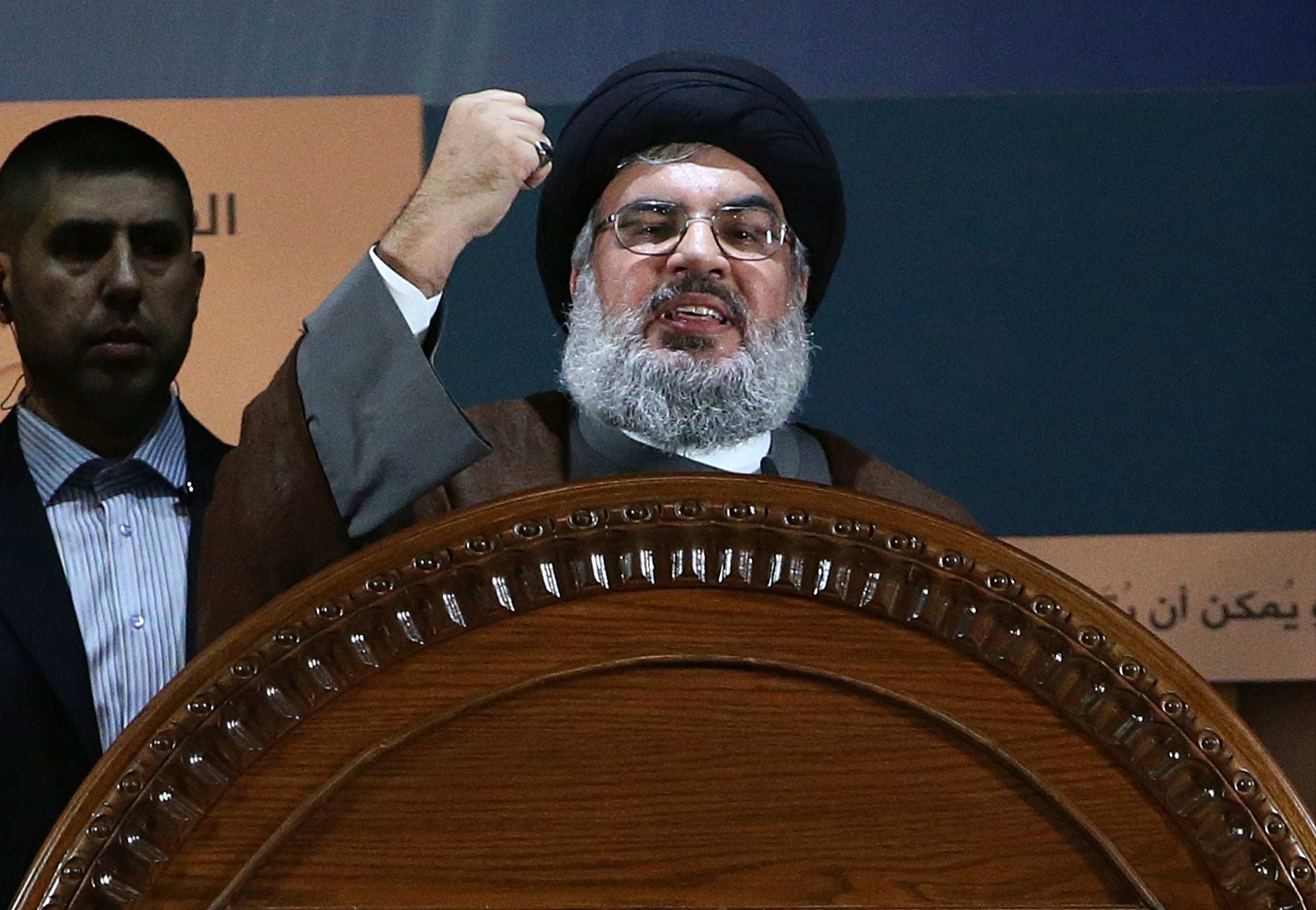The killing of Hezbollah’s leader will make Israel no safer
Editorial: The use of assassination as an instrument of war is doomed only to escalate the cycle of violence

The Israeli policy of “decapitation” is worse than futile. Benjamin Netanyahu, the prime minister of Israel, had already used assassination as an instrument of war, killing leaders of Hamas, Hezbollah and the Iranian Revolutionary Guards.
Now Israeli forces have dispatched Hassan Nasrallah, secretary general of Hezbollah. The Israel Defense Forces (IDF) boasts that it has now “taken out” the entire leadership of the paramilitary organisation in Lebanon.
The killing on Friday was a stunning blow, delivered while Mr Netanyahu was delivering a bellicose speech to the United Nations General Assembly in New York. But it remains our belief that it will not make Israel safer in the long run.
In the short term, of course, it will demoralise Hezbollah and its allies in Hamas and Iran. If the assassination is a substitute for the “all-out war” that was feared in southern Lebanon, that may be no bad thing. But it will not defeat Hezbollah, nor will it kill the aim that it espouses of wiping Israel off the map.
It has to be remembered that Hezbollah was formed in the first place to fight the Israeli invasion of Lebanon in 1982. Israel invaded to try to stop the Palestine Liberation Organisation (PLO), originally a secular nationalist movement, from launching attacks from there. The PLO was thus supplanted by an Islamist state within a state in Lebanon.
A decade later, Israel assassinated Abbas al-Musawi, Hezbollah’s leader, only for him to be replaced by Nasrallah who was, if anything, more extreme and more dangerous. This is the hydra principle in action: assassinating the leaders of militant organisations tends to lead to their replacement by harder-line commanders.
As Jonathan Powell, Tony Blair’s former chief of staff who played a key role in the Northern Ireland peace talks, has said: “Unintended consequences tend to prevail.” Mr Powell has argued that “terrorists” almost always have to be negotiated with in the end. A policy of decapitation makes that harder because the new leaders will be more extreme and less likely to be worn down by years of fighting.
Even eliminating the entire leadership of Hezbollah will not destroy the organisation, however much it may be weakened in the short term. It will renew itself, or be replaced by something worse. That is what happened when the US killed Abu-Musab al-Zarqawi, the leader of al-Qaeda in Iraq, in 2006, which led to the creation of Isis. “Trying to eliminate terrorist groups by ‘decapitation’ almost never succeeds,” Mr Powell wrote.
There is no prospect of eliminating either Hamas or Hezbollah, in the sense of eliminating the populations and the grievances that sustain them. As Sir Keir Starmer said at the UN in New York, “there is no military solution here”.
That is why we have called on the international community, and on the Israeli people, to try to alter the incentives operating on Mr Netanyahu and on Israel’s enemies. Tragically, it remains in Mr Netanyahu’s immediate political interest to prolong the war that he is fighting on three fronts, in Gaza, in Lebanon and, at a distance, against the Iranian leadership.
Until Mr Netanyahu is replaced, and until an alternative leadership emerges from the Palestinian people, probably in the West Bank, that can deliver tangible benefits and hope for the future for the Palestinians, the outlook for peace remains gloomy.
And until the Israeli intelligence and security services recognise that trying to eliminate every last Islamist paramilitary dedicated to the destruction of Israel is never going to guarantee Israel’s security, the prospect of any kind of negotiation seems bleak.
But the alternative to negotiation is a forever war. The most hopeful prospect in a conflict mired in pessimism is that Israel’s democracy allows for the peaceful transition to a different strategy under a different prime minister.






Join our commenting forum
Join thought-provoking conversations, follow other Independent readers and see their replies
Comments